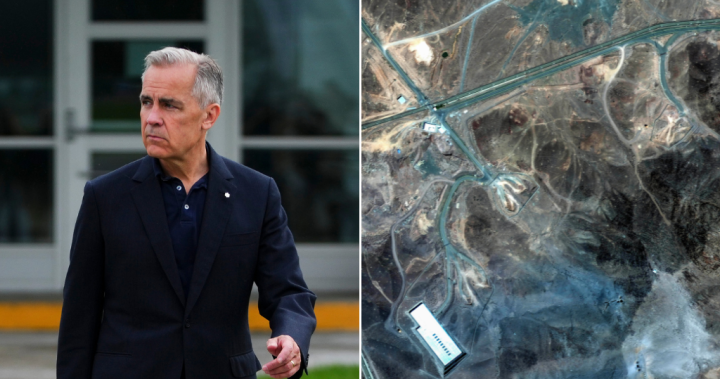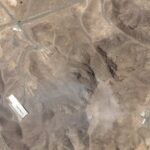Article – In the wake of last weekend’s unprecedented Iranian missile and drone attack on Israel, Canada’s former central bank governor and climate finance envoy Mark Carney weighed in on the escalating Middle East tensions, emphasizing the need for strategic diplomacy over further military escalation.
Speaking from the sidelines of the International Monetary Fund’s spring meetings in Washington, Carney struck a cautious tone about the potential economic consequences should the conflict continue to intensify. “We’re at a decisive moment where leadership matters tremendously,” Carney said during an interview with Global News. “The focus must be on de-escalation and preventing a wider regional conflict that would have devastating humanitarian and economic repercussions.”
The April 13 attack by Iran, which involved more than 300 projectiles launched toward Israeli territory, marked the first direct military assault on Israel from Iranian soil. Israel, with support from the United States, Jordan, and other allies, intercepted most incoming threats, but the attack has heightened fears of a full-scale war in a region already destabilized by the ongoing Israel-Hamas conflict in Gaza.
Carney, who currently serves as the UN Special Envoy for Climate Action and Finance, expressed particular concern about the potential for economic disruption should tensions escalate further. “The global economy remains fragile, still recovering from pandemic shocks and inflation pressures. A major Middle East conflict could trigger energy price spikes and supply chain disruptions that would set back recovery efforts worldwide,” he noted.
Oil markets have already shown volatility in response to the tensions, with prices jumping nearly 4% immediately following the Iranian attack before moderating slightly. The Strait of Hormuz, through which roughly 20% of global oil supplies pass, remains a particular vulnerability should hostilities expand.
When asked about potential Canadian diplomatic involvement, Carney emphasized the importance of middle powers in facilitating dialogue. “Canada has historically played an important role as an honest broker in international conflicts. There’s room for Canadian diplomacy to support efforts toward de-escalation alongside our allies,” he suggested.
The former Bank of England governor also addressed concerns about how the Biden administration has managed the crisis. “The U.S. has been walking a difficult line between supporting Israel’s security while trying to prevent regional escalation. Their approach of encouraging restraint while maintaining credible deterrence is challenging but necessary,” Carney observed.
According to regional security experts at the Washington Institute for Near East Policy, the coming days will be critical in determining whether the conflict spirals further. Israel’s Prime Minister Benjamin Netanyahu faces domestic pressure for a strong response, while the international community, including the G7, has called for maximum restraint.
Carney’s comments come amid growing concerns that an Israeli counter-strike against Iran could target nuclear facilities or oil infrastructure, potentially triggering more severe economic consequences. The International Crisis Group warned in a recent briefing that attacks on Iran’s energy sector could send global oil prices soaring above $100 per barrel.
“What’s needed now is less public rhetoric and more private diplomacy,” Carney said. “Economic stability depends on political stability, and right now the risks of miscalculation are dangerously high.”
The conflict’s timing is particularly concerning as it coincides with fragile economic conditions globally. The IMF meetings where Carney was present focused heavily on persistent inflation, rising global debt, and slowing growth in major economies. A significant Middle East conflict could undermine progress on all these fronts.
Carney also reflected on the broader geopolitical context, noting that traditional diplomatic channels have weakened in recent years. “We’re operating in a more fractured international system where multilateral institutions have less influence than during previous crises. This makes the risk of escalation higher and the pathways to de-escalation narrower,” he explained.
For ordinary Canadians, Carney acknowledged that distant conflicts can seem removed from daily concerns, but emphasized their potential impact. “The interconnectedness of our world means regional conflicts quickly become global economic issues. From energy prices to supply chains to investment stability, these tensions have real implications for Canadian households and businesses.”
As world leaders continue navigating this volatile situation, Carney’s perspective offers a reminder that economic and humanitarian considerations must remain central to diplomatic calculations. “The path forward requires wisdom, restraint, and a commitment to finding political solutions rather than military ones,” he concluded.






